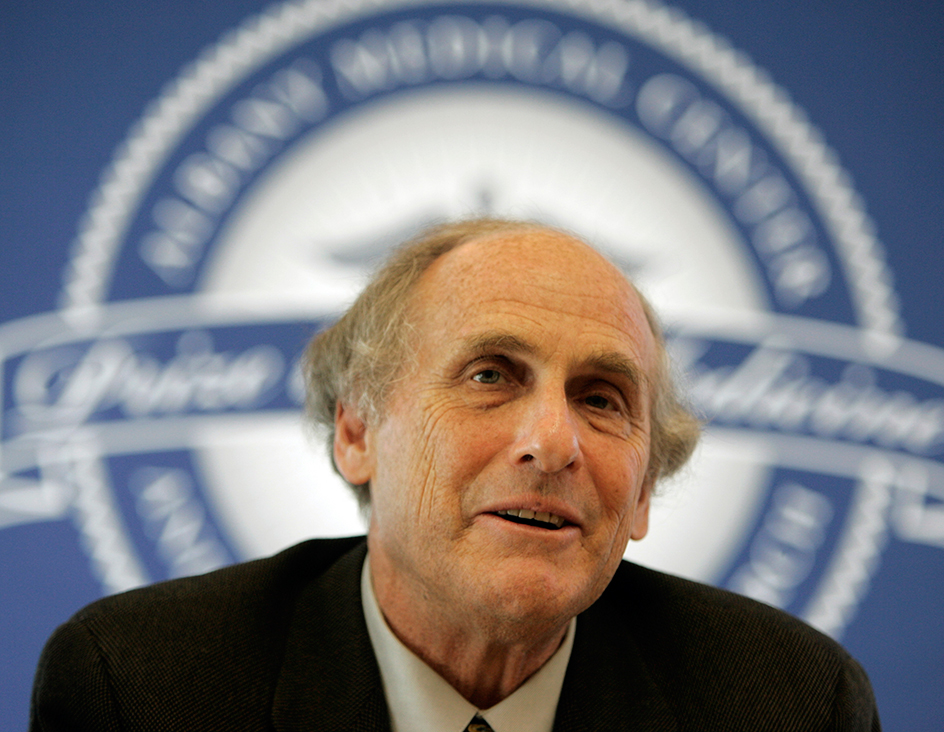Steinman, Ralph Marvin (1943-2011), a Canadian-born biologist, shared the 2011 Nobel Prize in physiology or medicine for his discovery of a type of white blood cells called dendritic cells. Dendritic cells are an important part of the immune system. Steinman shared the prize with the biologists Bruce A. Beutler of the United States and Jules A. Hoffmann of Luxembourg, who also won for research on the immune system.

Dendritic cells are a variety of white blood cells with long, armlike projections. They are one of several immune system cells called antigen-presenting cells. These cells engulf invading microbes, called antigens, and break them up. The dendritic cells then move pieces of the antigen to the surface of the dendritic cells. There, other immune system cells encounter and recognize the fragments. These cells can then join any future attack against the antigen. Dendritic cells make up part of the adaptive immune system, which adjusts its attack to a particular antigen. Steinman continued to research dendritic cells to understand how they help regulate the immune system and how immune system diseases develop.
Steinman was born in Montreal on Jan. 14, 1943. He graduated from McGill University in Montreal in 1963. He then earned an M.D. degree from Harvard Medical School in Boston in 1968. He began research at Rockefeller University in New York City in 1970. He was appointed professor there in 1988. He remained there for his entire career. Steinman died of pancreatic cancer in New York City on Sept. 30, 2011, three days before the Nobel committee announced that he had won. Steinman treated himself with experimental therapies based on his own research. He credited the therapies with extending his life.
See also Hoffmann, Jules Alphonse .
